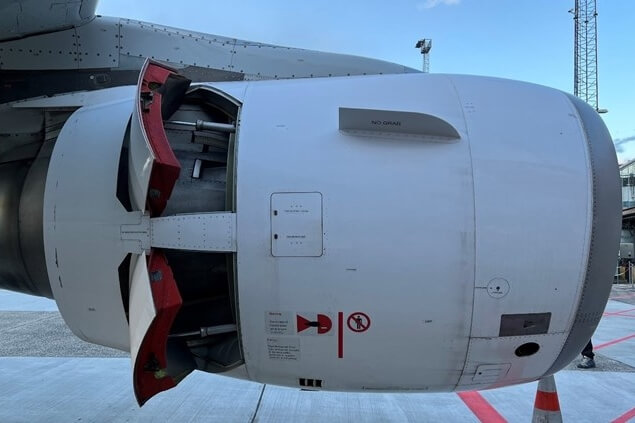Danish air accident investigators have released a preliminary report into a serious incident at Copenhagen airport, when thrust reversers inadvertently deployed on an Airbus A320.
The TAP Portugal A320, registration CS-TNV, was approaching runway 30 at CPH on April 8, 2022 when the crew decided to abort the landing at low altitude.
The Accident Investigation Board Denmark said in a report on April 19, 2022 that the pilots applied take-off/go-around thrust, but the aircraft started veering to the left and did not climb or accelerate away as expected.
The crew then noticed that the thrust reverser doors on the number 1 engine (left engine) were unlocked, and that engine was at idle thrust.
Fortunately, the crew were able to regain control of the aircraft, climbing away to a safe altitude using one engine. They declared an emergency and returned to land without further incident on Runway 22L. None of the 109 people on board the flight were injured during the incident.
Initial reports from witnesses suggested the aircraft had made contact with the ground during the aborted landing. However, investigators said inspections of the runway and aircraft showed no sign of ground contact or external damage to the aircraft. However, three out of four thrust reverser doors on the no.1 engine were in the fully deployed position,
Thrust reversers are deployed when the aircraft is on the ground to slow down after landing and inadvertent thrust reverser deployment can be deadly.
On May 26, 1991, Lauda Air Flight 004 from Bangkok, Thailand to Vienna, Austria entered an uncontrolled dive and broke up mid-air after the thrust reverser on the Boeing 767’s no 1 engine deployed uncommanded in flight. All 213 passengers and 10 crew died.
The investigation into the TAP Portugal flight will continue, with experts looking at various sources of information to determine why the thrust reversers deployed. They will examine flight recorders, the engine, the weather and carry out interviews with crew and others.

